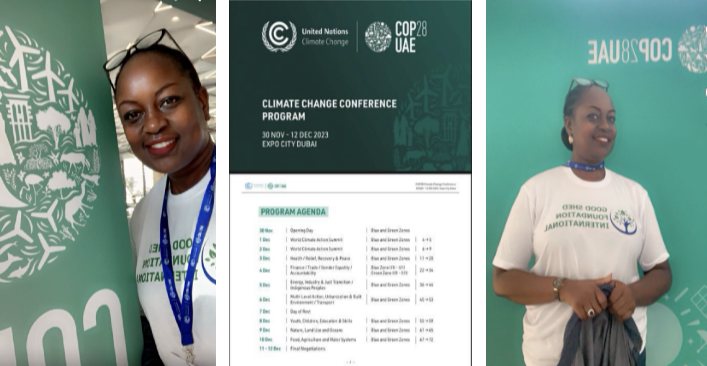As the 28th UNFCCC meeting comes to a close in Dubai, every participant has taken something home. Whether it materializes or not is another story.
The question has been raised, that in the quest to mobilize green investment in the new macro-economic era, are climate actions part of the budgeting processes of Least Developing Countries (LDCs)? Do we even have disaster-monitoring/early detection mechanisms? Are staff at the different levels of our governments trained to incorporate climate parameters in their work?
Uganda, like all common wealth countries, is one of those experiencing the adverse effects of climate change. In 2021, the common wealth vulnerability index was launched and it shows that LDCs are most vulnerable to climate change, a fact nobody can dispute. We must rise and jointly fight for equitable access to finance to achieve our respective nationally agreed objectives. The UAE has committed USD 30M to climate finance, but capacity of LDCs must be built to deploy these funds if we are to see the desired climate action.
Other avenues open to LDCs include Debt-for-nature swaps and Blended financing, which all require regional collaboration if we are to achieve the desired action. No single LDC can go this alone. The Loss & Damage Fund was launched at COP27 in Sharm El Sheikh, but how much of this money is trickling down to LDCs? Damage is felt mostly by children, women, the disabled and elderly. There is need to assess the extent of Loss & Damage before attempts to remedy the situation can see fruition. Many countries at COP28 have committed to 100% manage the sustainability of their data space.
Climate-induced mobility is another topic that was widely discussed at COP28. As nature goes wild, homes are destroyed, lives are lost and families have to move and attempt to start life all-over again in a new place. Needless to say, this mobility increases poverty, which leads to children dropping out of schools, increased burden on already-stretched medical infrastructure, mental health issues and the list goes on. Uganda is leading when it comes to opening our borders to refugees and this is commendable. However, these refugee settlements are not spared as the climate continues to change. Most of them depend on food handouts (at least in the initial stages), but the said food needs to be grown and with the unpredictable weather, food security is no longer a guarantee.
The ever-changing weather patterns have drastically destabilized life for the rural dwellers in LDCs. In Uganda, for instance, where over 80% of our population live in the countryside and depend solely on agriculture, climate change is akin to a curse. Many struggle to have even one meal a day. As a result, the children may not benefit much from the free education that government has made available, simply because a hungry child cannot concentrate in class. While the developed countries are exploring how to navigate the technology space and utilize AI to solve their immediate and long-term problems, the African child is grappling for his one meal a day. Unemployment has drastically affected our youth and as such, we see an influx of youth moving to urban areas in search of the mirage called a “better life” simply because the country side reliance on set weather patterns is no longer predictable.
In conclusion, the climate change issue can only be successfully handled when developed countries make good of their commitments to the LDCs while the latter should seriously implement ideas fronted in board rooms on the sustainability of the planet through sustainable ways to ensure that Africa’ children are well-fed and educated. I repeat, a hungry child cannot concentrate in class


